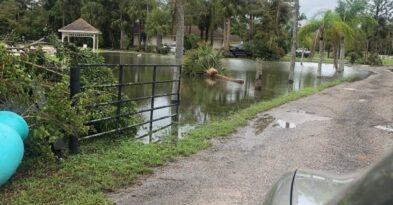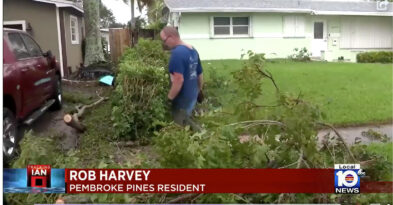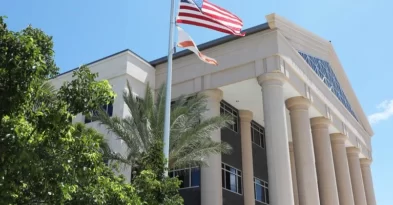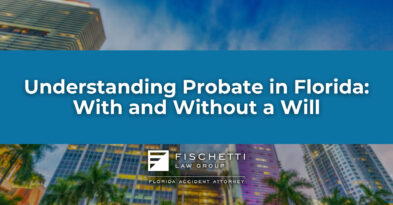Can an Estate Be Settled Without Probate in Florida?
Losing a loved one is difficult enough without having to worry about the time, stress, and expense of court proceedings. The good news is that avoiding probate in Florida may be possible with the right estate plan.
Estate planning lawyers at Fischetti Law Group can explore multiple strategies for the seamless transition of assets. Our goal is to minimize or even avoid probate altogether. This makes it easier for heirs and beneficiaries after you pass away, as well as prevents the estate from being consumed by legal fees.
Call Fischetti Law Group at 833-645-3247 (833-MIKE-247) for insights on avoiding probate in Florida. We offer FREE 20–30 minute consultations for clients in Boynton Beach, Fort Pierce, and nearby communities.
What Is Probate?
Probate is the legal process of settling the estate of a person after their death. An estate comprises the assets held by the decedent, as well as any debts they accrued. During probate, the court will take the following steps:
- Determining if the decedent had a will
- Verifying that the will is properly executed in accordance with Florida law
- Inventorying the decedent’s assets, including real estate, bank and investment accounts, life insurance policies, etc.
- Appointing a personal representative to manage the estate
- The court usually accepts the personal representative named in the decedent’s will, if specified.
- Ensuring that the decedent’s debts and any taxes are paid
- Authorizing the transfer of assets to beneficiaries in accordance with the will
- If there is no will, the court will distribute assets according to the laws of intestate succession (see Florida Statutes § 732.101–111).
Going through the probate process is not easy. Families and beneficiaries often feel exasperated by the time, costs, and complexity involved.
That is why avoiding probate is often a key focus for estate planning attorneys in Florida. It can save clients a lot of worry during their lifetime, minimize frustration and inconvenience for beneficiaries, and prevent the estate from being depleted by the cost of litigation.
Do All Wills in Florida Have to Go Through Probate?
In Florida, all wills must be submitted to probate court. Florida Statutes § 732.901 states that the custodian of the will must submit it to the county clerk of court within 10 days of receiving notice of the decedent’s death. The custodian may be a spouse or close family member, or a third party such as an attorney.
While all wills in Florida do need to be filed with the court, not all wills need to go through the full probate administration process. The probate court will verify the will, but administration is only required if the decedent left probate assets.
Estates valued at less than $75,000 and with no outstanding debts may qualify for a simpler probate process known as “summary administration.” For larger estates, assets are subject to formal administration if they are:
- Owned solely in the decedent’s name at the time of their death
OR - Co-owned by the decedent at the time of their death, with no beneficiary or right of survivorship designation
Careful estate planning is key for avoiding probate in Florida. With the right preparations, you can keep assets from being subject to formal administration and streamline distribution to your beneficiaries when you pass on.
What Assets Avoid Probate in Florida?
Several different types of assets do not need to go through probate. These include:
Jointly Owned Property with Rights of Survivorship
Both real property (like a house) and personal property (like a bank account) may be jointly owned by two or more people. Arrangements such as joint tenancy with right of survivorship (JTWROS) and tenancy by the entirety (TBE) automatically give the surviving owner the right to inherit the property when a co-owner dies, without the need for probate.
Bank & Investment Accounts with Beneficiary Designations
Payable-on-death (POD) and transfer-on-death (TOD) designations allow bank accounts, investment accounts, securities, life insurance policies, and other assets to go straight to beneficiaries without probate.
Revocable Living Trusts
With a revocable living trust, you can maintain control of assets through the course of your life and specify how and when they are distributed after you’re gone. Any assets transferred to the trust prior to death are not subject to probate.
Irrevocable Trusts
With an irrevocable trust, ownership of assets is transferred away from you and into a trust. Because they are no longer in your name, assets in an irrevocable trust are not subject to probate. A knowledgeable estate planning lawyer can discuss the pros and cons of revocable and irrevocable trusts.
Homestead Property
Florida’s Constitution provides special protections for primary residences, otherwise known as homestead property. When the owner dies, homestead property usually passes directly to the surviving spouse and/or children. Homestead property is typically exempt from the full probate process, as well as claims by creditors.
Strategies for Avoiding Probate in Florida
A capable attorney can help you find ways to avoid probate when making an estate plan. The available options depend on factors such as your family situation and the assets you have. If your circumstances change, it may be necessary to update your estate plan so assets continue to be protected.
Common strategies that may allow the estate to be settled with minimal probate involvement include:
- Drafting a will and setting up trust(s): Everybody needs a will, and creating one or more trusts goes the extra mile toward ensuring that assets are distributed according to your wishes while avoiding probate.
- Creating an enhanced life estate deed: Also known as a “lady bird deed,” an enhanced life estate deed lets you keep full control of real property during your lifetime and arrange for it to be transferred to one or more beneficiaries without probate.
- Designating POD/TOD beneficiaries: With payable-on-death and transfer-on-death designations, probate is not required for financial assets such as life insurance, retirement savings, bank accounts, investments, etc.
- Establishing JTWROS for jointly owned properties and other assets: A joint tenancy with right of survivorship arrangement bypasses probate by naming a co-owner to whom the asset automatically passes in the event of the other owner’s death.
- If you are married, establishing TBE for properties and assets you acquired with your spouse: Married couples in Florida have the exclusive right to establish tenancy by the entirety for property they acquire jointly. Probate is averted because the surviving spouse becomes the owner automatically upon death.
- Gifting assets to heirs prior to death: If you transfer assets to beneficiaries prior to death, they are no longer part of your estate. This avoids probate for gifted assets, though it is important to be aware of the IRS’s estate and gift tax rules.
Feeling confused or overwhelming? Don’t worry. A Florida estate planning lawyer can explain each of these strategies and design a personalized estate plan on your behalf.
Contact Fischetti Law Group Today
No one wants to leave their loved ones to pick up the pieces after they’re gone. They certainly don’t want their family and any other beneficiaries to have to go through protracted litigation before they can receive their inheritance.
Having an estate plan is an excellent start, but avoiding probate in Florida requires additional forethought and action. Fischetti Law Group can help you take steps today to simplify and even bypass the probate process later.
Get the advice you need to make the best decisions for you and the people you care about. Fischetti Law Group offers a FREE 20–30 minute consultation for clients throughout South Florida.









